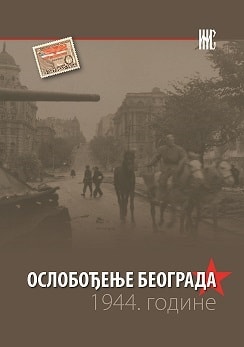Проблема признания новой Югославии на завершающем этапе войны в освещении российской историографии
The Problem of Recognizing the New Yugoslavia at the End of the Second World War in the Russian Historiography
Author(s): Aleksandar Kulagin
Subject(s): Political history, International relations/trade, WW II and following years (1940 - 1949), Philosophy of History, Politics of History/Memory
Published by: Institut za noviju istoriju Srbije
Keywords: Soviet-Yugoslav relations; recognition of the new Yugoslavia; AVNOJ in international relations; Russian historiography of the history of Yugoslavia;
Summary/Abstract: Recently, reduced interest in the diplomatic struggle for the recognizing of the new Yugoslav state in the Russian historiography. The reason is that in Soviet times the topic of relations AVNOJ and the USSR in this period has been given sufficient attention. And despite some discussion, the topic is fairly investigated. However, the problem of international recognizing of the new Yugoslavia is beyond the scope of relations between the USSR and the partisan commanders. It includes a set of international issues related to the struggle between the great powers for the organization of the postwar European order. In the Soviet historiography begins researching of this topic in a short time after the Second World War end. But the majority of researcher studied the soviet struggle for new Yugoslavia recognizing only. Moreover owing to peculiarity of the soviet archive system were almost all of the soviet sources without attention. Besides were not well-known the British sources. Consequently there are some questions, which are some discussion and now there about. The Soviet-Partisans relations in November–December 1943 connected with the summit in Jajce The Change of the British-American strategy towards Yugoslavia and their Michailovich give up The Tito summits with Churchill and Shubashich in the summer of 1944 The Tito secret visit to Moscow in September 1944 and the contents of his speaking to Stalin The British-Soviet negotiations in autumn of 1944 and the „procent agreement”. Consequently is this topic of present interest. But its researching isn’t possible without renovating of source base, especially without using the sources of the soviet foreign policy on the end of the Second World war. Moreover is also necessary to change the methodology and examine this problem in the context of relations between the great powers.
Book: Ослобођење Београда 1944.
- Page Range: 524-533
- Page Count: 10
- Publication Year: 2010
- Language: Russian
- Content File-PDF

